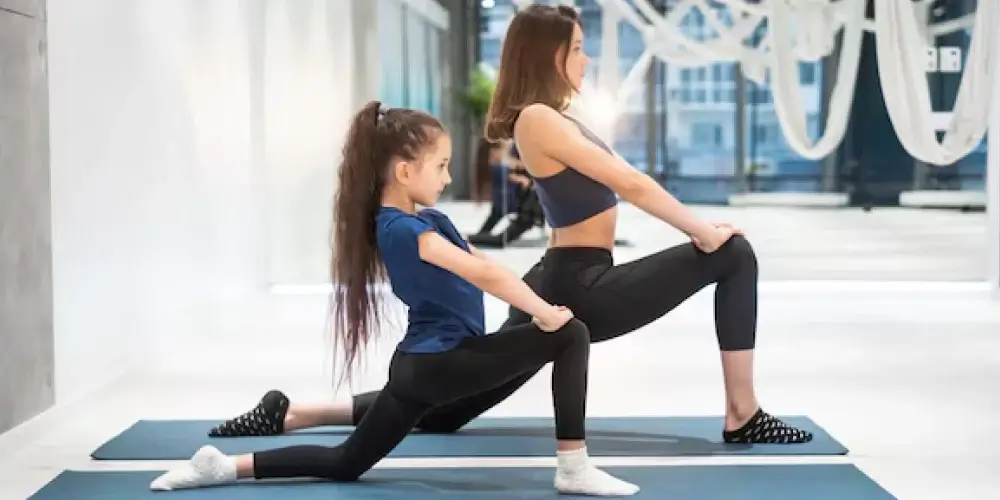

Enhancing Stability and Strength: Balance and Core Exercises
11/05/2024 Richard P. 1685
Achieving stability and core strength are fundamental aspects of physical fitness that contribute significantly to overall health and well-being. In this blog, we will explore the definitions of balance and core strength, discuss their respective health benefits, provide examples of exercises that enhance balance and core strength, and offer tips on how to improve stability effectively.
Definition of Balance and Core Strength
Balance
Balance refers to the ability to maintain control of the body's position, whether stationary or while moving. It requires coordination between sensory systems (such as vision, proprioception, and vestibular senses) and muscular control to prevent falls and maintain stability.
Core Strength
Core strength refers to the muscular strength and endurance of the muscles in the abdomen, pelvis, lower back, and hips. These muscles work together to stabilize the spine, pelvis, and shoulders, providing a solid foundation for all movements and activities.
Health Benefits of Balance and Core Exercises
Incorporating balance and core exercises into your fitness routine offers numerous physical and mental health benefits:
1. Improved Posture
Strong core muscles support proper alignment of the spine and pelvis, reducing strain on the back and improving overall posture. Good posture enhances breathing, digestion, and overall comfort.
2. Enhanced Stability and Coordination
Balance exercises challenge the body's ability to distribute weight and maintain equilibrium, improving overall stability and coordination. Enhanced stability reduces the risk of falls and injuries, particularly in older adults.
3. Increased Functional Strength
Core strength is essential for performing everyday activities such as bending, lifting, twisting, and reaching. A strong core enhances functional strength and efficiency in daily tasks and sports performance.
4. Reduced Risk of Injury
Strong core muscles provide stability and support to the spine and joints, reducing the risk of back pain, strains, and other musculoskeletal injuries. Improved balance and coordination also contribute to injury prevention.
5. Better Athletic Performance
Athletes benefit from enhanced core strength and balance, as it improves agility, speed, and power during sports-specific movements. Strong core muscles enable better force transfer and movement efficiency.
6. Enhanced Proprioception
Balance exercises improve proprioception, which is the body's awareness of its position and movement in space. Better proprioception enhances body control and reaction times, essential for sports and daily activities.
7. Stress Relief and Mental Focus
Core and balance exercises require concentration and mindfulness, promoting mental relaxation and reducing stress levels. The focus required during these exercises can enhance cognitive function and mental clarity.
Examples of Balance and Core Exercises
Incorporate these balance and core exercises into your fitness routine to enhance stability and core strength:
1. Core Exercises
Plank Variations
-
Standard Plank: Begin in a push-up position with elbows directly under shoulders. Hold your body in a straight line from head to heels, engaging the core muscles.
-
Side Plank: Lie on one side with elbow under shoulder and legs stacked. Lift hips until body forms a straight line, engaging oblique muscles.
-
Plank with Leg Lift: From a plank position, lift one leg off the ground while maintaining stability and alignment. Alternate legs.
Abdominal Exercises
-
Crunches: Lie on your back with knees bent and hands behind your head. Lift your head, neck, and shoulders off the ground using abdominal muscles.
-
Leg Raises: Lie on your back with legs straight. Lift legs towards the ceiling, engaging lower abdominal muscles.
2. Balance Exercises
Single-Leg Stance
-
Single-Leg Balance: Stand on one leg with the opposite knee bent slightly. Hold the position for 30 seconds to 1 minute, then switch legs.
-
Tandem Stance: Stand heel-to-toe with one foot directly in front of the other. Maintain balance for 30 seconds, then switch foot positions.
Stability Ball Exercises
-
Ball Pass: Lie on your back with a stability ball between your hands and feet. Pass the ball from hands to feet and back, engaging core muscles.
-
Ball Knee Tucks: Start in a plank position with feet on the stability ball. Pull knees towards chest, rolling the ball towards you.
3. Dynamic Balance Exercises
Standing Leg Swings
-
Front-to-Back Swings: Stand on one leg and swing the opposite leg forward and backward in a controlled motion. Maintain balance and control throughout.
-
Side-to-Side Swings: Stand on one leg and swing the opposite leg side to side, maintaining stability and alignment.
Yoga and Tai Chi
-
Tree Pose: Stand on one leg with the sole of the opposite foot pressed against the inner thigh or calf of the standing leg. Bring hands to prayer position and hold.
-
Tai Chi Exercises: Tai Chi movements emphasize flowing, balanced motions that promote both physical and mental well-being.
Tips for Improving Stability
Follow these tips to enhance stability and core strength effectively:
-
Start Slowly: Begin with basic exercises and progress to more challenging variations as you build strength and stability.
-
Focus on Form: Maintain proper alignment and engage core muscles throughout each exercise to maximize benefits and prevent injury.
-
Incorporate Variety: Include a mix of static and dynamic balance exercises to challenge different muscle groups and improve overall stability.
-
Use Props and Equipment: Incorporate stability balls, balance boards, and resistance bands to add variety and increase the challenge of exercises.
-
Practice Regularly: Perform balance and core exercises at least 2-3 times per week to maintain and improve stability over time.
-
Combine with Cardio and Strength Training: Incorporate balance and core exercises into a well-rounded fitness routine that includes cardiovascular and strength training workouts.
Balance and core exercises are essential for enhancing stability, improving core strength, and supporting overall physical performance and well-being. By incorporating a variety of exercises that challenge balance, coordination, and core muscles, you can reap the numerous health benefits, including improved posture, reduced risk of injury, enhanced athletic performance, and better overall functional strength. Whether you are a fitness enthusiast, athlete, or someone looking to enhance daily stability and mobility, these exercises can be tailored to suit your fitness level and goals. Start integrating balance and core exercises into your routine today to build a strong foundation for a healthy and active lifestyle.
Recent Blogs
Building a Diversified Inves ...
26/01/2025 1834
Integrating AI and Machine L ...
24/01/2025 1394
Health Insurance Regulations ...
22/01/2025 2453
Recognizing Signs of Mental ...
20/01/2025 2474
Understanding Employers' Leg ...
18/01/2025 1412
Trending Blogs
Interest Rates: How They Aff ...
20/06/2024 12713
Client Retention: Building S ...
20/06/2024 10762
Introduction to Common Law: ...
21/06/2024 9828
Common Types of Criminal Charges
02/03/2024 8997
Corporate Finance Law: Raisi ...
04/06/2024 8728











